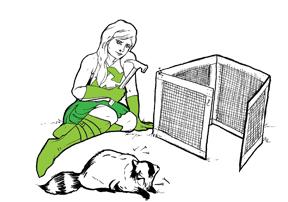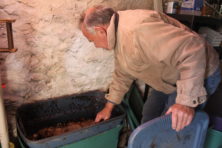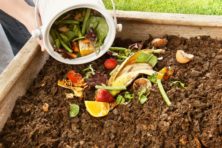Composting: The Easiest Form of Recycling
- Share
- Tweet
- Pin
- Share

According to the Environmental Protection Agency, in 2009 Americans produced about 243 million tons of Municipal Solid Waste, or about 4.3 pounds of waste per person per day.
While over half of our waste ends up in landfills, recycling and composting in 2009 prevented 82 million tons of material from making it there. This prevented the release of approximately 178 million metric tons of carbon dioxide into the air – equivalent to taking 33 million cars off the road for a year.
While most of us don’t have the technical abilities or know-how to transform a plastic bottle into high-tech fabric or a glass bottle into a high-end countertop, everyone has the ability to compost organic materials. In fact, composting is one of the easiest forms of recycling for organic materials like yard trimmings, food scraps, wood waste, and paper and paperboard products. These materials are the largest component of our trash and make up more than two-thirds of the solid waste produced in the United States.
In addition to keeping this waste from entering our landfills, composting offers an array of environmental benefits. Composting creates a rich, nutrient-filled material called Humus, which can be used not only to regenerate poor soils but also to help remediate contaminated soil. Using compost can reduce the need for water, as the composted material holds moisture and reduces run-off, and the natural materials will improve the fertility and health of your soil, reducing the need for fertilizers and pesticides.
Composting can be as simple or complex as you choose to make it. Natural materials break down in nature all the time, and composting simply helps speed up the process. Some choose to just start a pile, while the more involved get into nutrient management and specially designed bins and tumblers.
See below for some tips on building a compost bin, what waste can be composted, as well as a few tips for troubleshooting your compost.
More Resources: http://www.epa.gov; http://www.uwex.edu/ces/shwec


